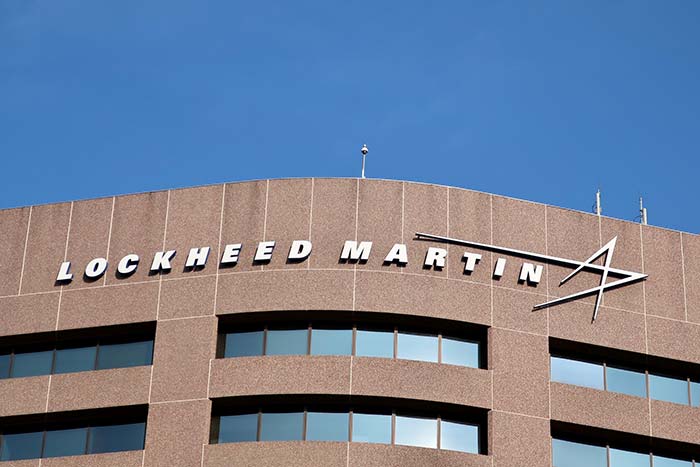Lockheed Martin (NYSE: LMT) has been a stalwart of the defense industry for decades. From missiles and F-35 fighter jets to satellites and cybersecurity solutions, its portfolio of advanced technology systems, products, and services touches nearly every aspect of modern warfare and national security.
The company’s stock has seen a dramatic surge. Shares have skyrocketed from around $450 in early July to over $550 today – a whopping 22% gain in just a matter of weeks.
This rapid ascent appears to have been largely driven by escalating tensions in the Middle East, as investors have bet on increased defense spending amid the threat of an expanded conflict. But in today’s market, is this aerospace giant still a good value?
Let’s run the numbers through The Value Meter to find out.
At first glance, Lockheed’s enterprise value-to-net asset value (EV/NAV) ratio of 23.54 might raise some eyebrows. It’s more than double the average of 10.95 for companies with positive net assets.
Typically, this would suggest the stock is overvalued. But with Lockheed, there’s more to the story.
As you’d expect, what stands out here is Lockheed’s cash generation. The company has churned out positive free cash flow in each of the past four quarters. On average, it’s generating cash at a rate of 22.51% of its net assets every quarter. That’s nearly triple the 7.92% average for firms with similarly consistent cash flow.
This suggests Lockheed is squeezing a lot more value out of its assets than its peers.
Lockheed’s recent financial results underscore this strength. In the second quarter of this year, the company reported $1.5 billion in free cash flow, which was up significantly from the same period last year. This robust cash generation has allowed Lockheed to fund R&D, make strategic acquisitions, and return about $1.6 billion in cash to shareholders through dividends and buybacks.
Speaking of dividends, Lockheed’s yield currently sits at about 2.3%. While that’s not eye-popping, it’s solid for a blue chip stock, and it has grown consistently over the years. The company has increased its dividend for 21 years in a row, demonstrating its commitment to shareholder returns.
Lockheed’s backlog of nearly $160 billion, which is more than two times its annual revenue, provides visibility into future earnings. This is crucial in the defense industry, where long-term contracts are the norm. Recent geopolitical events have only heightened the demand for Lockheed’s products – from F-35 fighter jets to missile defense systems.
The company isn’t resting on its laurels either. Lockheed is investing heavily in next-generation technologies like hypersonics, directed energy weapons, and artificial intelligence. Thanks to these initiatives, the company is positioned well for future growth in an evolving defense landscape.
When we balance Lockheed’s premium valuation against its superior cash generation, strong backlog, and encouraging growth prospects, the stock looks more attractive than its EV/NAV ratio alone would suggest.
While the stock may not be a screaming bargain, Lockheed’s financial strength and positioning in the defense industry make it an intriguing option for long-term investors. But I’d strongly recommend keeping an eye on geopolitical developments, as these can significantly impact Lockheed’s fortunes.
The Value Meter rates Lockheed Martin as “Slightly Undervalued.”

What stock would you like me to run through The Value Meter next? Post the ticker symbol(s) in the comments section below.

